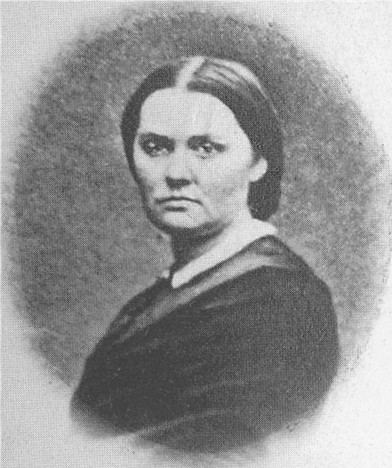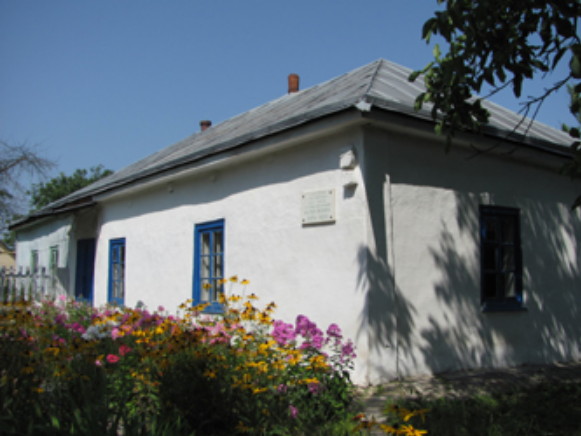Vovchok, Marko
Vovchok, Marko [Vovčok] (pseud of Mariia Vilinska), b 22 December 1834 in Ekaterininskoe, Orel gubernia, Russia, d 10 August 1907 in Nalchik, in Caucasia. (Photo: Marko Vovchok.) Writer. In 1851 she married Opanas Markovych, who had been a member of the Cyril and Methodius Brotherhood, and moved from Orel to Ukraine. From 1851 to 1858 she lived in Chernihiv, Kyiv, and Nemyriv and studied the Ukrainian language and Ukrainian traditions and folklore and wrote Narodni opovidannia (Folk Stories), which was published in 1857. It met with immediate acclaim in Ukrainian literary circles, particularly from Taras Shevchenko and Panteleimon Kulish, and in Russia (it was translated into Russian and edited by Ivan Turgenev as Ukrainskie narodnye rasskazy [Ukrainian Folk Tales, 1859]). In 1859, after a short stay in Saint Petersburg, Vovchok moved to Germany. She spent some time in Switzerland, England, and Italy but stayed the longest in Paris. In 1862 a two-volume edition of Narodni opovidannia was published, and individual works were published in the journals Osnova (Saint Petersburg), the monthly Meta, and the weekly Vechernytsi. . From 1867 to 1878 Vovchok lived in Saint Petersburg, where owing to the prohibition against the Ukrainian language she wrote and translated for Russian journals. She wrote in Russian Zhivaia dusha (The Living Soul, 1868), Zapiski prichetnika (The Notes of a Participant, 1870), V glushi (In the Backwoods, 1875), and several other novels. From 1878 Vovchok lived in Subcaucasia, and in 1885–93 in Kyiv gubernia, where she continued her work on Ukrainian folklore and a dictionary. At the beginning of the 1900s she renewed her contact with Ukrainian publishers.
Elements of realism appear mainly in her short stories about Ukrainian peasants living under serfdom and about the difficult plight of women. Other works continue the tradition of ethnographic romanticism and are typified by strong characters and willful heroes. Also in that tradition are the children's stories ‘Dev'iat’ brativ i desiata sestrytsia Halia’ (Nine Brothers and the Tenth Sister Halia, 1863), ‘Karmeliuk’ (1865), and ‘Marusia’ (1871), the last-named of which was popular for some time in France in the translation of Pierre Jules Stahl (Maroussia, d'apres la légende de Marko Wovzog, 1878). Vovchok's prose markedly influenced the development of the Ukrainian short story in the second half of the 19th century. Editions of Vovchok's works have been published in Ukrainian in Kyiv in 7 vols (1964–7) and 3 vols (1975). Several books about Vovchok have been written by her grandson, Boris Lobach-Zhukenko, and an edition of her Ukrainian Folk Stories (trans N. Pedan-Popil) was published in Saskatoon in 1983.
Mykola Hlobenko
[This article originally appeared in the Encyclopedia of Ukraine, vol. 5 (1993).]
.jpg)


.jpg)
.jpg)